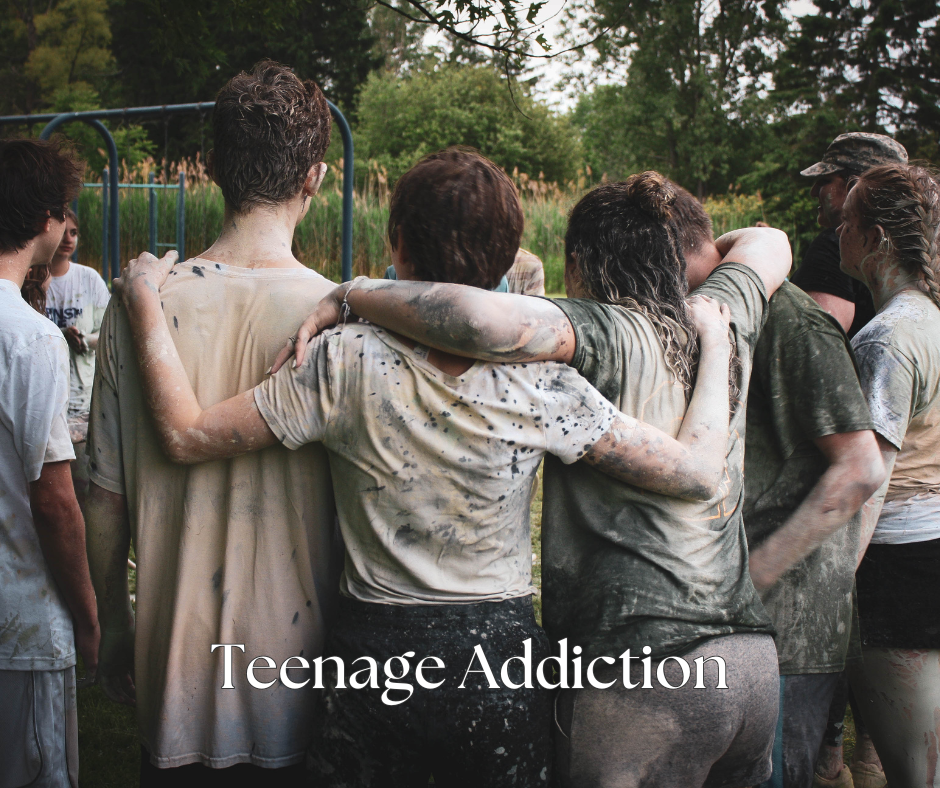
Facing teenage addiction is a heart-wrenching experience for any parent. The journey is fraught with emotional turmoil, confusion, and a deep sense of helplessness. However, understanding, patience, and strategic action can make a significant difference in helping your child overcome addiction. Here’s some crucial advice for parents navigating this challenging path.
1. Educate Yourself
The first step in tackling teenage addiction is to educate yourself about the nature of addiction. Understanding that addiction is a complex disease, often with underlying psychological, genetic, and environmental factors, can help you approach the situation with empathy and knowledge. Familiarize yourself with the substances your teen may be using, the signs and symptoms of addiction, and the various treatment options available.
2. Open Communication Channels
Effective communication is key. Create an environment where your teen feels safe to talk about their struggles without fear of judgment or punishment. Listen actively and empathetically, showing that you care about their feelings and experiences. Avoid blame and criticism; instead, focus on expressing your concern and desire to help. Establishing trust is essential for any progress.
3. Seek Professional Help
Addiction is a medical condition that often requires professional intervention. Consult with healthcare providers who specialize in addiction treatment. They can provide a comprehensive evaluation and recommend appropriate treatment options, such as counseling, outpatient programs, or inpatient rehabilitation. A multidisciplinary approach that includes medical professionals, therapists, and support groups can offer the best chance for recovery.
4. Set Boundaries and Expectations
While it’s important to be supportive, setting clear boundaries and expectations is equally crucial. Define acceptable behaviors and the consequences of breaking these rules. Consistency in enforcing these boundaries helps your teen understand the seriousness of their situation. However, ensure that the rules are reasonable and focus on encouraging positive behavior rather than punishment.
5. Encourage Healthy Activities
Help your teen find healthy outlets for their energy and emotions. Encourage participation in sports, hobbies, volunteer work, or any positive activities they enjoy. These activities can provide a sense of purpose, improve self-esteem, and reduce the likelihood of relapse. Additionally, maintaining a structured daily routine can help your teen stay focused and avoid triggers.
6. Take Care of Yourself
Dealing with a teen’s addiction is incredibly stressful. It’s essential to take care of your own physical and emotional well-being. Seek support from friends, family, or support groups for parents of addicted teens. Professional counseling for yourself can also be beneficial. Remember, you can’t pour from an empty cup; taking care of yourself enables you to be a better support system for your child.
7. Be Patient and Persistent
Recovery from addiction is often a long and challenging process, with potential setbacks along the way. Be patient and persistent in your support. Celebrate small victories and remain hopeful, even during difficult times. Your consistent support and belief in your teen’s ability to recover can be incredibly motivating for them.
8. Stay Informed and Involved
Stay actively involved in your teen’s recovery process. Attend counseling sessions, support group meetings, and any family therapy offered. Stay informed about their progress and challenges. Your involvement shows your teen that they are not alone and that you are committed to their recovery.
Facing teenage addiction is undoubtedly one of the toughest challenges a parent can encounter. However, with education, open communication, professional help, and unwavering support, you can guide your teen towards recovery. Remember, you are not alone in this journey—reach out for help and support when needed, and keep faith in your ability to make a positive impact on your teen’s life.
 Parenting is one of life’s greatest joys and challenges, but when a teenager becomes entangled in addiction, it can feel like navigating a stormy sea with no compass. Watching your child struggle with substance abuse is a heart-wrenching experience, but there are coping techniques and resources available to help you weather the storm and support your adolescent through recovery.
Parenting is one of life’s greatest joys and challenges, but when a teenager becomes entangled in addiction, it can feel like navigating a stormy sea with no compass. Watching your child struggle with substance abuse is a heart-wrenching experience, but there are coping techniques and resources available to help you weather the storm and support your adolescent through recovery. Dealing with a teenager struggling with addiction is an immensely challenging and heart-wrenching experience for any family. The impact of addiction ripples through the entire household, affecting relationships, trust, and the overall well-being of everyone involved. However, by implementing strategic approaches and seeking support, families can navigate this difficult journey with resilience and hope.
Dealing with a teenager struggling with addiction is an immensely challenging and heart-wrenching experience for any family. The impact of addiction ripples through the entire household, affecting relationships, trust, and the overall well-being of everyone involved. However, by implementing strategic approaches and seeking support, families can navigate this difficult journey with resilience and hope. Parenting a teenager is already a challenging journey, filled with the complexities of adolescence. When addiction enters the picture, the difficulties can seem insurmountable. However, empowering parents to navigate this tough terrain is essential for the well-being of both the teenager and the entire family.
Parenting a teenager is already a challenging journey, filled with the complexities of adolescence. When addiction enters the picture, the difficulties can seem insurmountable. However, empowering parents to navigate this tough terrain is essential for the well-being of both the teenager and the entire family. Once your teen is receiving help, it is important to offer support and remain involved in the recovery process. This includes attending family meetings, keeping in touch with the treatment center and visiting your teen in treatment. It is also helpful to attend support groups and community events to gain an understanding of what your teen is going through. Additionally, it is important to create a safe environment for your teen when they return home. This means having a no-tolerance policy for any drugs, alcohol, or other addictive substances.
Once your teen is receiving help, it is important to offer support and remain involved in the recovery process. This includes attending family meetings, keeping in touch with the treatment center and visiting your teen in treatment. It is also helpful to attend support groups and community events to gain an understanding of what your teen is going through. Additionally, it is important to create a safe environment for your teen when they return home. This means having a no-tolerance policy for any drugs, alcohol, or other addictive substances.



